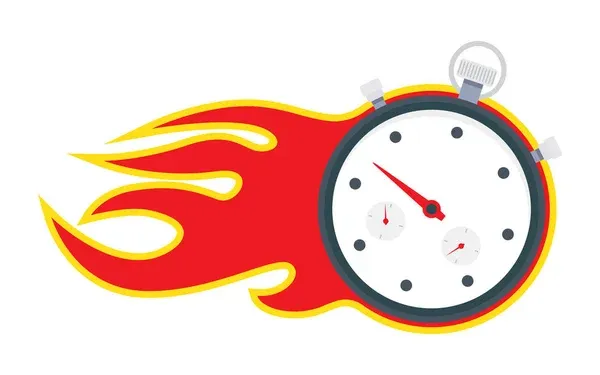Unlocking Shopify SEO Problems: Meta Descriptions and Shopify Keywords for Better Visibility
Learn how to enhance visibility and drive traffic by optimizing meta descriptions, keywords, and meta tags

In the fast-paced world of e-commerce, having a visually appealing Shopify store is just the beginning. To truly succeed in the competitive online marketplace, mastering search engine optimization (SEO) is crucial. Among the myriad of SEO techniques, meta descriptions and keywords play a vital role in enhancing visibility and driving traffic to your Shopify store.
When users search for products or services on search engines like Google, the meta description is often the first thing they see below the page title. It serves as a brief summary of the webpage's content, enticing users to click through to your site. Meanwhile, keywords strategically placed within shopify homepage meta description help search engines understand the relevance of your page to a user's query, ultimately affecting your search engine ranking.
Optimizing Meta Titles and Tags:
Meta description tag are HTML elements that define the title of a web page and are displayed prominently in search engine results. Optimizing and writing meta descriptions effectively can significantly impact your store's visibility and click-through rates.
Here's how you can optimize and write compelling meta descriptions of collection pages and tags on Shopify:
- Meta Titles:
- Conciseness: Keep meta titles concise yet descriptive, ideally within 50-60 characters to ensure they display fully in search results.
- Keyword Placement: Include relevant keywords at the beginning of your meta titles to signal the page's relevance to search engines and users.
- Brand Identity: Incorporate your brand name towards the end of the meta title to reinforce brand recognition and trust.
- Meta Tags:
- Product Tags: Assign relevant tags to your products to improve internal site search functionality and help users navigate your store more effectively.
- Collection Tags: Similarly, utilize tags for collections to organize products and facilitate browsing for users interested in specific categories.
- SEO Apps: Consider leveraging SEO apps available on the Shopify App Store to automate meta tag optimization and enhance your store's SEO performance.
By optimizing shopify meta descriptions and tags in alignment with your SEO strategy, you can enhance your Shopify store's visibility and appeal to both search engines and potential customers.
Monitoring and Analyzing Keywords:
To stay ahead in the competitive landscape of e-commerce, it's essential to continuously monitor and analyze keywords relevant to your Shopify store. Keyword analysis provides valuable insights into user search behavior, enabling you to refine your SEO strategy and optimize your store's content accordingly.
Here are some steps to effectively monitor and analyze keywords for your Shopify store:
- Search Query Analysis:
- Conduct thorough research to identify popular search queries related to your products or niche.
- Utilize keyword research tools such as Google Keyword Planner, SEMrush, or Ahrefs to explore relevant search terms and their search volumes.
- Analyze competitor websites to uncover keywords they're targeting and assess their SEO strategies.
- Monitoring Keyword Performance:
- Regularly monitor the performance of keywords used in your meta descriptions, meta titles, and content.
- Use Google Analytics and Google Search Console to track keyword rankings, organic traffic, and user engagement metrics.
- Pay attention to fluctuations in keyword rankings and adapt your SEO tactics accordingly to maintain or improve visibility.
- Adapting Strategy Based on Insights:
- Identify high-performing keywords driving traffic and conversions to prioritize in your SEO efforts.
- Adjust meta descriptions, meta titles, and content to better align with top-performing keywords and user intent.
- Experiment with new keywords or variations to expand your reach and capitalize on emerging trends.
- Refining Content Strategy:
- Incorporate insights from keyword analysis into your content strategy to create relevant and engaging content.
- Develop blog posts, product descriptions, and landing pages optimized for targeted keywords to attract organic traffic.
- Continuously iterate and refine your content strategy based on keyword performance and user feedback.
By consistently monitoring and analyzing keywords, you can fine-tune your Shopify store's SEO strategy to better meet the needs of your target audience and improve your search engine rankings. In the following section, we'll discuss common SEO mistakes to avoid and provide solutions to optimize your store effectively.
Common SEO Mistakes to Avoid:
While optimizing your Shopify store for search engines, it's crucial to steer clear of common SEO mistakes that can hinder your efforts and impact your store's visibility. By identifying and rectifying these pitfalls, you can ensure that your store maintains a strong presence on search engine results pages (SERPs) and attracts qualified traffic.
Here are some common SEO mistakes to avoid:
- Duplicate Meta Descriptions and Title Tag:
- Having identical meta descriptions and titles across multiple pages can confuse search engines and diminish the relevance of your content. Ensure that each page has unique and good meta description tailored to its specific content.
- Keyword Stuffing:
- Overloading meta descriptions, titles, and content with excessive keywords in an attempt to manipulate search engine rankings can result in penalties and harm user experience. Focus on natural, relevant keyword usage that enhances readability and user engagement.
- Ignoring Technical SEO Issues:
- Neglecting technical aspects of SEO such as site speed, mobile-friendliness, and crawlability can hamper your store's performance in search results. Regularly audit your Shopify store for technical issues and address them promptly to improve overall SEO health.
- Neglecting Local SEO:
- If your Shopify store serves a specific geographic area, overlooking local SEO optimization can lead to missed opportunities for visibility among local customers. Optimize your store's meta tags, content, and listings for local keywords and directories to improve local search rankings.
- Failing to Update Content Regularly:
- Outdated or stale content can negatively impact your store's SEO performance. Regularly update product descriptions, blog posts, and other content to keep it fresh and relevant to both users and search engines.
- Lack of Quality Backlinks:
- Backlinks from authoritative and relevant websites are essential for building credibility and authority in the eyes of search engines. Invest in link-building strategies to acquire high-quality backlinks that boost your store's SEO.
- Ignoring User Experience (UX):
- Poor UX, such as slow page load times, confusing navigation, or intrusive pop-ups, can drive users away and negatively impact your store's SEO. Prioritize UX enhancements to improve dwell time, reduce bounce rates, and signal quality to search engines.
By avoiding these common SEO mistakes and implementing best practices, you can optimize your Shopify store effectively and improve its visibility and ranking on search engine results pages.
SEOPro: Powering Your Shopify Store's Success
To conquer Shopify SEO challenges and propel your online store to new heights, you need more than just standard optimization techniques of title and meta description. That's where SEOPro comes in. SEOPro offers a comprehensive solution tailored specifically for Shopify merchants, enabling you to tackle SEO hurdles with ease.
With SEOPro, you can address meta descriptions and keywords, refine meta titles and tags, and avoid common SEO pitfalls—all within a single, user-friendly platform. By seamlessly integrating SEOPro into your workflow, you'll be equipped to optimize your Shopify store efficiently and effectively, ensuring sustained success in the fiercely competitive online marketplace.
Remember, SEO is an ongoing journey, and SEOPro is your trusted companion every step of the way. Stay ahead of the curve, adapt to industry shifts, and maximize your Shopify store's potential with SEOPro. Experience the difference today by installing SEOPro and unlock a world of SEO opportunities for your business.





